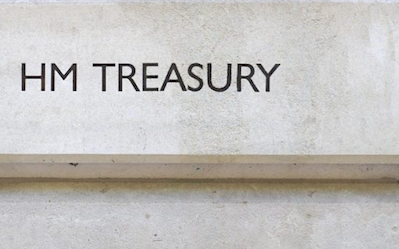The UK’s public sector net debt excluding public sector banks was provisionally estimated at around £2.74 trillion or 99.5% of gross domestic product (GDP) at the end of June, 2024 — 2.8 percentage points more than at the end of June 2023.
The UK’s debt remains at levels last seen in the early 1960s.
UK central government borrowing was £14.5 billion in the month of June, 2024 — £3.2 billion lower than in June last year but £2.9 billion higher than the £11.6 billion forecast by the Office for Budget Responsibility (OBR) — according to latest figures from the UK’s Office for National Statistics (ONS).
UK borrowing in the first three months of 2024-25 was £49.8 billion. This was £1.1 billion less than the same three months last year, but £3.2 billion more than the £46.6 billion forecast by the OBR.
UK central government total expenditure was £297.3 billion in the three months to June 2024, £4.6 billion more than in June 2023.
The interest payable on UK central government debt was £7.4 billion in the month of June 2024, £5.5 billion less than in June 2023, largely because the interest payable on index-linked gilts rises and falls with the Retail Prices Index (RPI).
Dennis Tatarkov, senior economist at KPMG UK, said: “The new Chancellor faces the daunting task of funding the new government’s agenda, while maintaining public finances on a sustainable footing.
“A combination of high levels of spending and weak growth prospects will present uncomfortable choices – deciding between even more borrowing or substantially raising taxes if spending levels are to be maintained.”
Tatarkov added: “Stronger departmental spend in June 2024 pushed borrowing ahead of expectations.”
The UK’s chief secretary to the Treasury Darren Jones said: “Today’s figures are a clear reminder that this government has inherited the worst economic circumstances since the Second World War, but we’re wasting no time to fix it.
“Fixing the economy’s foundations and restoring stability is the only way we can create growth and put more money back into people’s pockets across the country.
“That’s why we’ve introduced our Budget Responsibility Bill, which will ensure that no future Government can play fast and loose with the public finances.”
Rob Wood, economist at the consultancy Pantheon Macroeconomics, said: “The new chancellor Rachel Reeves did not get a warm welcome from the government borrowing figures …
“As it stands Reeves will still likely have to raise taxes in the medium term to cover the need to spend more on public services.”
